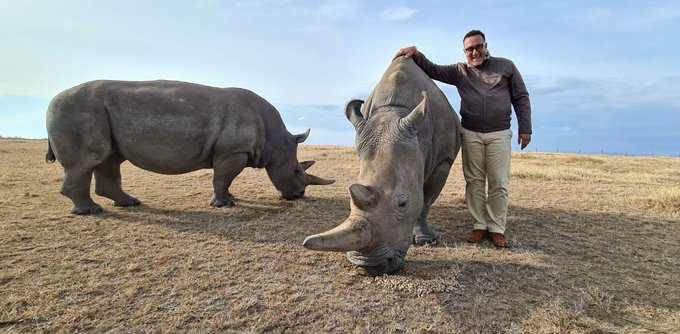As the world marks World Wildlife Day with gusto, Kenya is celebrating a rare occurrence in zero rhino poaching cases in 2020.
Kenya will be celebrating this year’s World Wildlife Day in Shimoni, Kwale County.
Kenya Wildlife Service (KWS) in a statement on Wednesday said this is the first time in the last 21 years that no single case of poaching has been recorded
“For the first time in 21years, KWS reported ZERO poaching of Rhinos in the year 2020,” KWS said in a statement.
In the last seven years, rhino poaching cases have reduced from 59 to zero, an occurrence that was last witnessed in 1999.
“Rhino poaching has reduced from a high of 59 cases in 2013 when poaching was at its peak to Zero poaching in 2020. The last time this feat was achieved was in 1999,” the statement added.
Data by KWS shows by 2017, Kenya has a total of 1,258 rhinos.
KWS has achieved this by employing working strategies which include “anti-poaching & intelligence – led law enforcement operations, as well as strengthening collaboration with stakeholders, law enforcement agencies (multi-agency approach) and local communities to minimize poaching.”

A Kenya Wildlife Service Ranger on patrol. [Photo: KWS]
Kenya was home to Sudan, a northern male white rhino that died in 2018 due to health complications. Sudan had been living in Ol Pejeta.
With his death, that only left two last northern white rhinos – Najin and Fatu – currently at Ol Pejeta Conservancy surviving with Najin reportedly in ill health.
A statement by Ol Pejeta conservancy which has hosted the last species of northern white male and female rhinos for more than a decade indicated that scientists were busy at work in saving the species from extictions.
Najin has a tumour on her abdomen which has affected the working of her reproductive organs.
The conservancy has successfully had created two embryos from eggs harvested from Fatu who was given birth to by Najin.
Also read: Experience Kenya’s Wild Safari Excellence At The Ol Pejeta Conservancy
The collection of the embryos happened on December 13, 2020. A multi-agency team drawn from Leibniz Institute for Zoo and Wildlife Research (Leibniz-IZW), Safari Park Dvr Králové, Kenya Wildlife Service and Ol Pejeta Conservancy was involved in the exercise.
There are now five useful northern white rhino embryos that have been collected and preserved. Three others were created in 2019.
Ol Pejeta Conservancy CEO Richard Vigne offered that the scientific process to produce the embryos gives hope to the world of saving the northern white rhino from extinction.
“The creation of two more embryos nourishes the hope that despite challenges and delays caused by Covid-19, the northern white rhino can still be saved. The next steps in the programme are already underway,” Vigne in a statement.

Rhinos in one of the Kenyan parks. [Photo: globintobin]
In 2020, efforts by scientists and researchers to collect eggs from Fatu for harvesting was challenged by the outbreak of coronavirus, a fact that Ol Pejeta acknowledges.
Also read:Kenya Boasts Of A Week-Old Southern Male White Rhino Calf
Scientists have been working hard in collecting and fertilizing eggs for embryo production.
“The successful embryo creation in December 2020 is a conciliatory end to a challenging year for the northern white rhino rescue programme and the world of conservation at large. The procedures scheduled for March and June had to be cancelled or postponed owing to the Covid-19 pandemic,” said the conservancy.
However, the egg harvesting process and fertilization have their fair share of challenges.
In August 2020, Ol Pejeta spoke of a failed bid to create embryos from Fatu and Najin from whom the eggs had been harvested.
Four months later – December 2020 – the international consortium of scientists working on saving the northern white rhino successfully produced two northern white rhino embryos.








